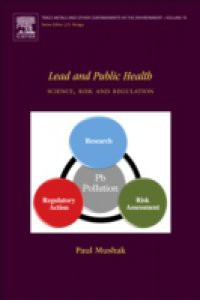The book presents a detailed assessment of the health science of lead and the human health risk assessment models for lead's human health impacts, followed by an account of various regulatory efforts in the United States and elsewhere to eliminate or reduce human toxic exposures to lead. The science of lead as presented here covers releases of lead into the environment, lead's movement through the environment to reach humans who are then exposed, and the spectrum of toxic effects, particularly low-level toxic effects, on the developing central nervous system of the very young child. The section on human health risk assessment deals with quantifying not only the dose-response relationships that underlie toxic responses to lead in sensitive populations but also with the likelihood of toxic responses vis-a-vis environmental lead at some level of exposure. This section includes a treatment of computer models of lead exposure, particularly those that use lead in whole blood as a key measure. Various models convert lead intake via various body compartments into measures of body lead burden. Such measures are then directly related to severity of injury. The final section of the book deals with past and present regulatory efforts to control lead releases into the human environment. Current control efforts present a mixed picture. The most problematic issue is the continued presence of lead paint in older housing and lead in soils of urban and mining industry communities.Comprehensive assessment of the three major facets of the public health problem of lead: the voluminous science, the risk assessment approaches, and approaches to controlling lead as a public health problem.Integration of the above three elements to provide a coherent wholeProvides a single source of information that will be extremely valuable to all professionals working in areas impacted by this toxic substance

